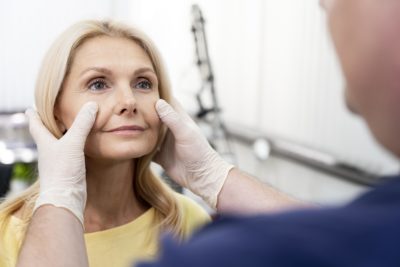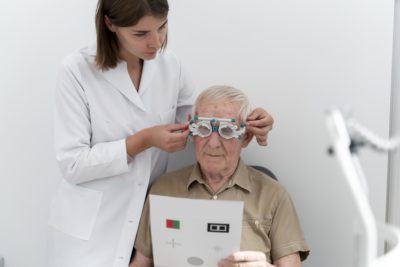The Impact of Summer Heat on Your Eyes – Why Eye Experts Urge Precautions?
As the summer sun heats up, most of us are focused on staying cool and protecting our skin. But did you know that those bright rays can also pose risks to your eyes? Eye experts are urging everyone to take precautions to safeguard their vision during these hot months. Let’s explore why summer heat can be tough on our eyes and what simple steps we can take to keep them healthy and comfortable all season long.
Expert Advice on Eye Protection
Eye care specialists emphasise the necessity of protective measures during summer to shield our eyes from these potential hazards. One of the most basic, yet crucial steps is wearing sunglasses that offer UV protection. Quality sunglasses can block harmful UV rays and reduce the risk of developing UV-related eye conditions.
Furthermore, using hats or caps with wide brims can provide additional shade to your eyes, minimising direct exposure to sunlight. This is particularly important during peak hours when the sun’s rays are strongest (typically between 10 a.m. and 4 p.m.).
What are the Symptoms that May Affect the Eyes During Summer?
Several symptoms may manifest due to various reasons such as increased UV exposure, dry conditions, or allergies. Here are common symptoms to watch out for:
-
Redness
One of the most noticeable signs due to summer heat is redness in the eyes. This can be caused by increased blood flow to the eyes in response to irritation or dryness.
-
Dryness and Irritation
Dry eye symptoms can worsen during summer due to higher temperatures and lower humidity. This may cause sensations of grittiness, burning, or a feeling of foreign body sensation in the eye.
-
Itchiness:
Allergens like pollen are more prevalent in the air during summer, leading to allergic reactions in the eyes. This can cause intense itching, particularly around the eyelids and in the corners of the eyes.
-
Watery Eyes:
Paradoxically, dry conditions can sometimes trigger excessive tearing as a protective response of the eyes to irritation. Watery eyes can also occur due to allergies.
-
Sensitivity to Light
Increased exposure to bright sunlight can lead to photophobia, or sensitivity to light. This can cause discomfort and make it difficult to keep the eyes open in bright conditions.
-
Blurry Vision
Dry eyes due to high temperature can temporarily affect the clarity of vision, causing blurry vision that may improve with blinking or using lubricating eye drops.
-
Headaches
Straining of the eyes due to excessive exposure to UV rays or bright sunlight can trigger headaches, especially in individuals prone to migraines or tension headaches.
-
Foreign Body Sensation
Feeling as though there is something stuck in the eye (foreign body sensation) can occur due to irritation from dust, pollen, or dryness exacerbated by summer heat.
-
Increased Eye Fatigue
Prolonged exposure to screens, air conditioning, or outdoor activities in the heat can lead to increased eye fatigue and discomfort.
Here’s Dr. Arnav discussing the impact of dry eyes and effective remedies to combat them. Tune in to this video to learn how to beat the summer heat and protect your eyes from discomfort and irritation.
What are the Risk factors?
The summer heat can lead to several eye-related issues, primarily due to increased exposure to ultraviolet (UV) radiation and other environmental factors. UV rays are known to cause various eye conditions such as photokeratitis (sunburn of the cornea), cataracts, and potentially accelerate macular degeneration. Prolonged exposure to UV radiation without protection can significantly increase these risks.
Moreover, dry and dusty conditions that often accompany summer heat can exacerbate dry eye syndrome, leading to irritation, redness, and discomfort. Pollen levels tend to be higher during summer, triggering allergies that manifest in itchy, watery eyes for many individuals.
Practical Tips for Eye Care in Summer
Aside from wearing sunglasses and hats, there are other practical steps one can take to protect their eyes during the summer months:
-
Stay Hydrated
Drink plenty of water to prevent dehydration, which can contribute to dry eye symptoms.
-
Use Eye Drops
Lubricating eye drops can help alleviate dryness and irritation caused by dust and pollen.
-
Avoid Rubbing Your Eyes
Resist the urge to rub your eyes, especially if you suffer from allergies, as this can exacerbate irritation.
-
Take Breaks from Screens
Reduce screen time and take regular breaks to rest your eyes, especially if you work indoors under artificial lighting.
-
Keep Indoor Spaces Moist
Use humidifiers indoors to maintain optimal humidity levels, preventing dry eye symptoms aggravated by air conditioning.
As temperatures rise during the summer, it’s crucial to prioritise the health of our eyes alongside other aspects of our well-being. By adopting simple yet effective measures like wearing sunglasses, using hats, and practising good eye hygiene, we can significantly reduce the risks associated with summer heat on our eyes. Remember, proactive care today can ensure healthier vision for years to come. So, let’s embrace these precautions and enjoy the sunny season with clear, comfortable eyes.
For those with existing eye conditions or sensitivity, consulting an eye care professional or visiting Dr Agarwals Eye Hospital for personalised advice and recommendations is essential. They can provide the best guidance on eye care routines and specific precautions to take based on individual needs.








